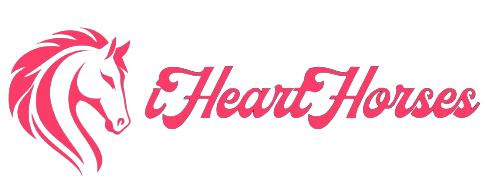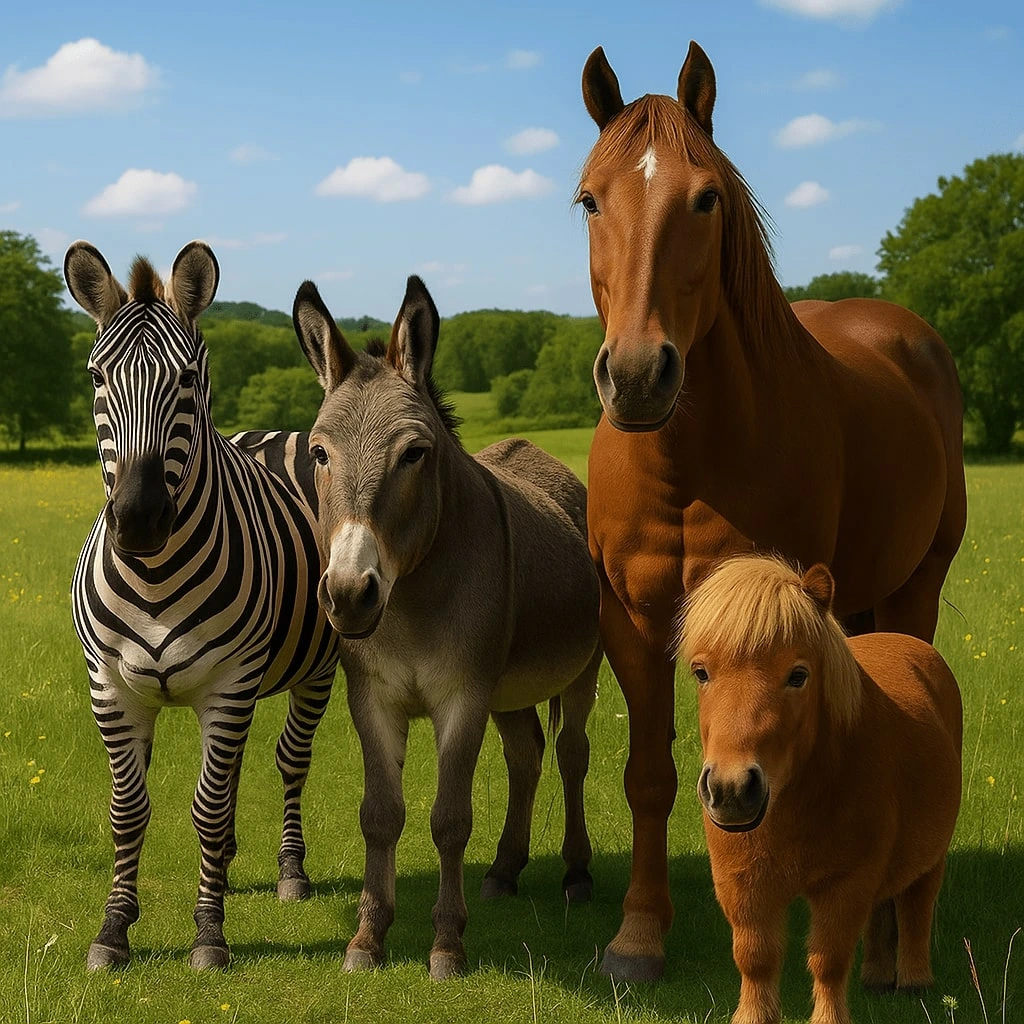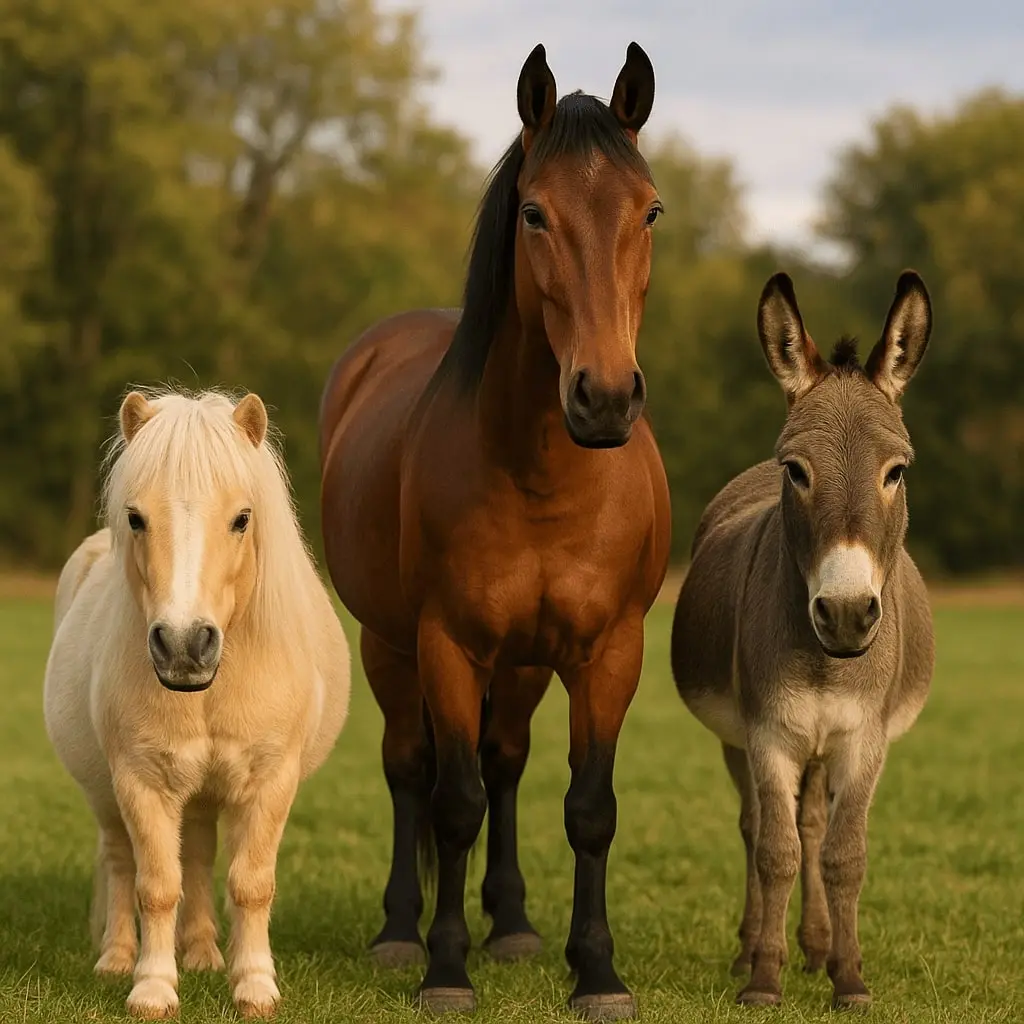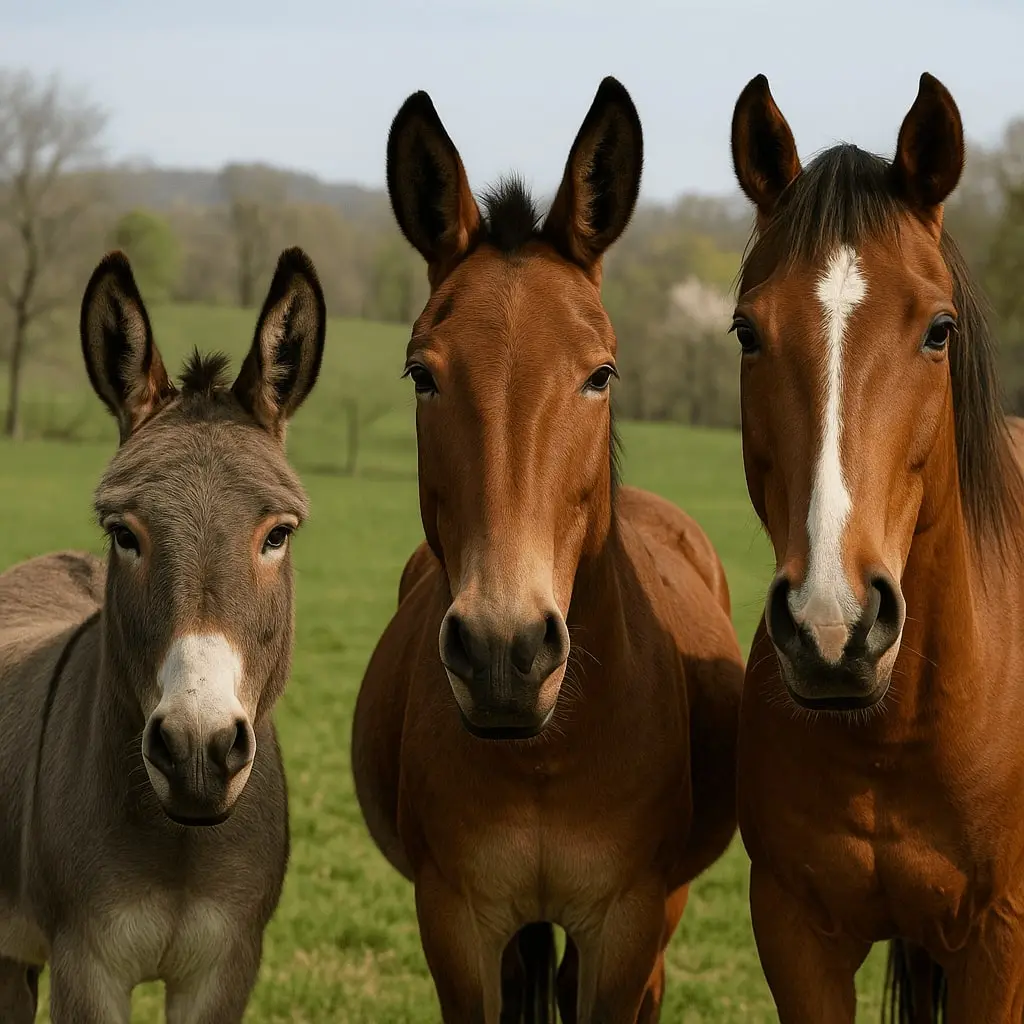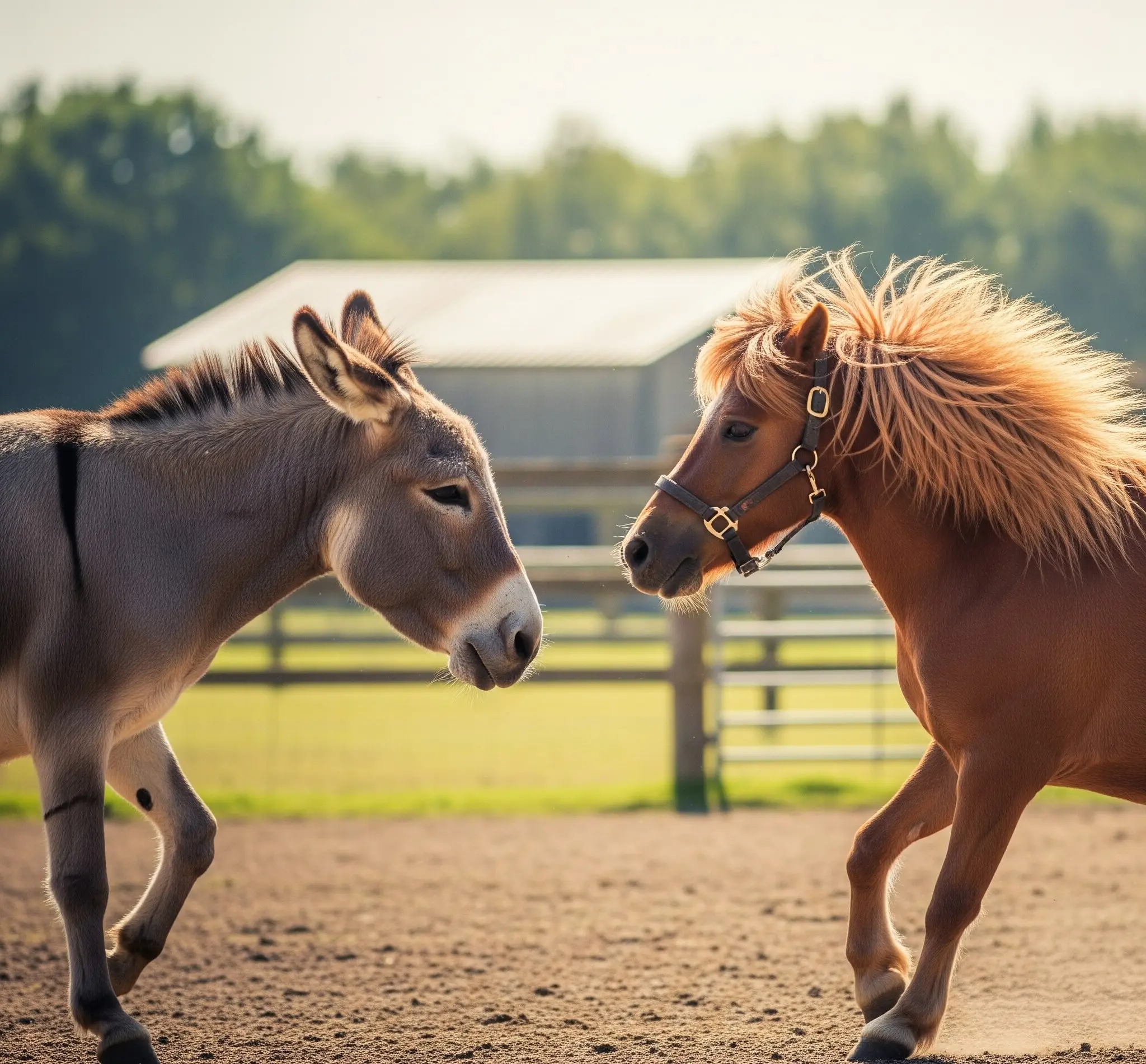Zebra vs Donkey vs Horse vs Pony—these animals might look similar, but they have many differences. In this blog, we’ll explore each one, comparing their looks, behavior, and more. Let’s dive in!
What Are Equines?
If we go zebra vs donkey vs pony vs horse, all four animals belong to the Equidae family. This means they share common ancestors. However, each has unique features that set them apart.
Zebra vs Donkey vs Horse vs Pony: Understanding the Differences
Here we go with the major differences between zebra vs donkey vs horse vs pony:
Zebras: The Wild Striped Equines
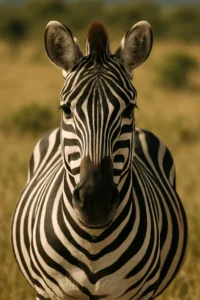
Appearance:
Zebras are known for their black and white stripes. Each zebra has a unique stripe pattern, much like human fingerprints. They have short, stiff manes and tails with tufts at the end, similar to donkeys. Zebras have long ears and a stocky build.
Behavior:
Zebras are wild animals found in Africa. They live in herds and are social creatures. Unlike horses and donkeys, zebras have never been domesticated. They are known to be unpredictable and can be aggressive when threatened.
Habitat:
Zebras inhabit savannas, grasslands, and mountainous areas in Africa. They are adaptable and can survive in various environments.
Horses: The Noble Steeds
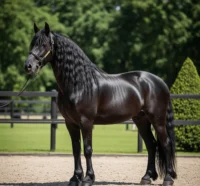
Appearance:
Horses are tall animals with long legs, flowing manes, and tails. They come in various colors and have short ears. Horses have a sleek, muscular build.
Behavior:
Horses are domesticated and have been companions to humans for centuries. They are intelligent, trainable, and often used for riding, work, and sports.
Habitat:
Horses are found worldwide, living in stables, farms, and open fields. They thrive in various climates and terrains.
Ponies: Small but Mighty
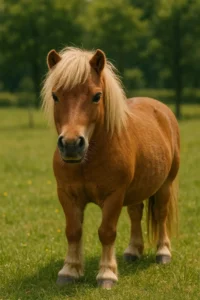
Appearance:
Ponies are smaller than horses, standing under 14.2 hands high. They have thicker manes, tails, and coats. Ponies often have shorter legs and broader bodies.
Behavior:
Ponies are strong, intelligent, and sometimes stubborn. They are excellent for children and beginners due to their size and temperament.
Habitat:
Like horses, ponies are domesticated and live in various environments, including farms and riding schools.
Donkeys: The Hardy Helpers
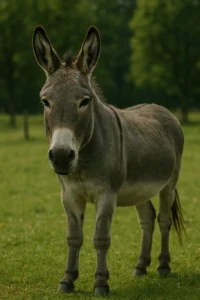
Appearance:
Donkeys have long ears, short manes, and tails with tufts at the end. They are generally shorter and stockier than horses. Donkeys have a gray or brown coat.
Behavior:
Donkeys are intelligent, cautious, and strong. They are known for their sure-footedness and are often used as pack animals. Donkeys are more independent than horses.
Habitat:
Donkeys are domesticated and found worldwide, especially in arid and mountainous regions. They are well-suited for hot, dry climates.
Comparing Physical Features – Zebra vs Donkey vs Horse vs Pony
| Feature | Zebra | Horse | Pony | Donkey |
| Size | Medium | Large | Small | Small to Medium |
| Ears | Long | Short | Short | Long |
| Mane | Short and stiff | Long and flowing | Thick and short | Short and upright |
| Tail | Tufted end | Long with flowing hair | Short and bushy | Tufted end |
| Coat | Black and white stripes | Various colors | Various colors | Gray or brown |
| Build | Stocky | Sleek and muscular | Sturdy and compact | Stocky and strong |
| Domesticated | No | Yes | Yes | Yes |
Behavior and Temperament
- Zebras: Wild, unpredictable, and not suitable for domestication.
- Horses: Intelligent, trainable, and social.
- Ponies: Smart, sometimes stubborn, but generally gentle.
- Donkeys: Cautious, strong, and independent.
Genetic Differences
- Chromosomes:
- Horse: 64 chromosomes
- Donkey: 62 chromosomes
- Zebra: 32 to 46 chromosomes, depending on species
- Hybrids:
- Mule: Male donkey + Female horse
- Hinny: Male horse + Female donkey
- Zorse: Male zebra + Female horse
- Zonkey: Male zebra + Female donkey
Uses and Roles
- Zebras: Wild animals, not used for work or riding.
- Horses: Used for riding, sports, work, and companionship.
- Ponies: Ideal for children, beginners, and light work.
- Donkeys: Used for carrying loads, guarding livestock, and as companions.
Habitat and Distribution
- Zebras: Native to Africa, found in savannas and grasslands.
- Horses: Domesticated worldwide, adaptable to various environments.
- Ponies: Domesticated, found globally, often in colder climates.
- Donkeys: Domesticated, prevalent in arid and mountainous regions.
Summary Table
| Animal | Domesticated | Size | Temperament | Primary Use |
| Zebra | No | Medium | Wild | None (wild animal) |
| Horse | Yes | Large | Trainable | Riding, work, sport |
| Pony | Yes | Small | Gentle | Riding, light work |
| Donkey | Yes | Medium | Cautious | Carrying loads |
Zebra vs Donkey vs Horse vs Pony – In A Nut Shell
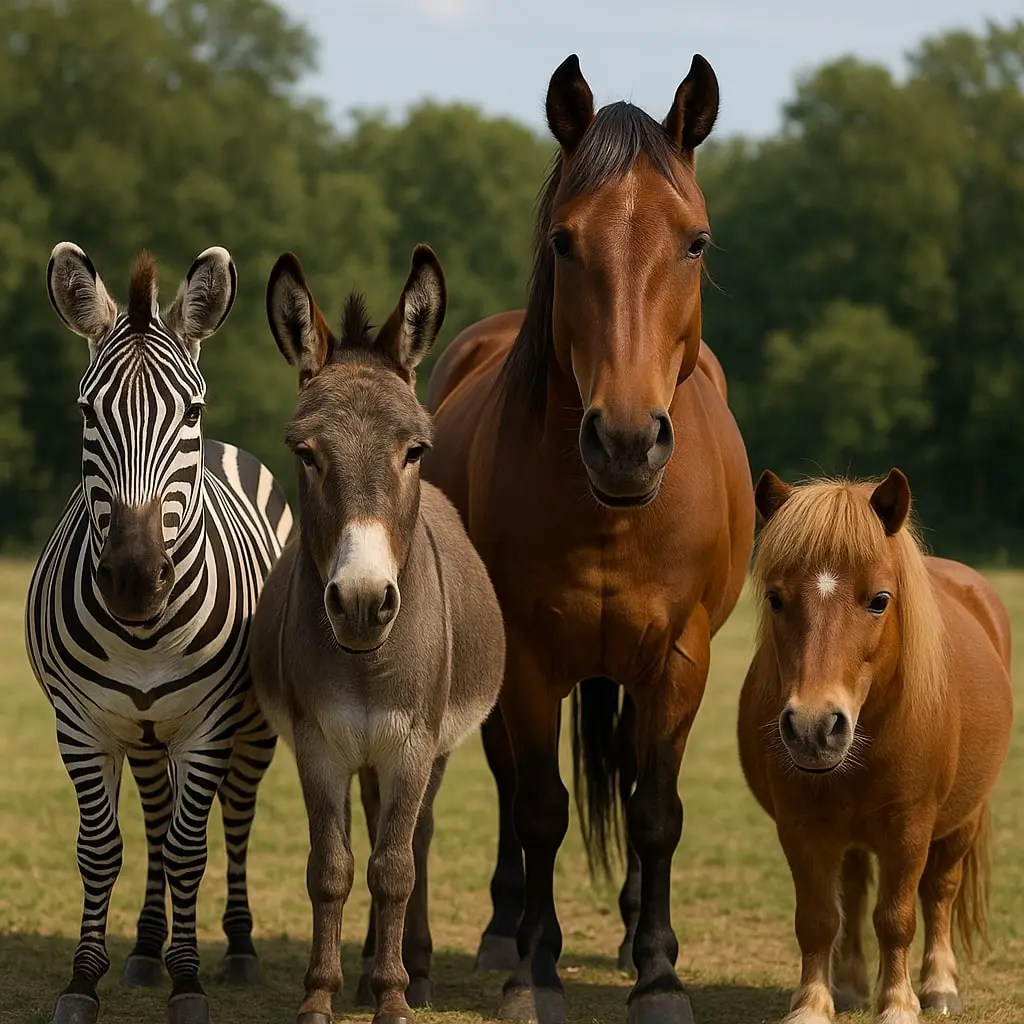
Understanding the differences between zebras vs donkeys vs horses vs ponies helps us appreciate each animal’s unique qualities. While they share a common ancestry, their appearances, behaviors, and roles vary greatly. Whether it’s the wild zebra’s striking stripes or the pony’s gentle nature, each equine has its special place in the animal kingdom.
Frequently Asked Questions
What is the main difference between a zebra, donkey, horse, and pony?
The primary differences lie in their size, appearance, behavior, and domestication status.
- Zebras: Wild animals native to Africa, known for their distinctive black-and-white stripes.
- Donkeys: Domesticated animals with long ears and a sturdy build, often used for carrying loads.
- Horses: Domesticated, tall animals with flowing manes and tails, commonly used for riding and work.
- Ponies: Smaller breeds of horses, under 14.2 hands high, known for their strength and gentle nature.
Can zebras be domesticated like horses and donkeys?
No, zebras have never been truly domesticated. They are wild animals with unpredictable behavior, making them unsuitable for domestication. Unlike horses and donkeys, zebras have not been bred for traits favorable to human use.
What is a mule, and how is it related to these animals?
A mule is a hybrid animal resulting from the mating of a male donkey (jack) and a female horse (mare). Mules inherit desirable traits from both parents, such as strength and endurance, but are typically sterile due to the differing chromosome numbers of horses and donkeys.
How do ponies differ from horses besides their size?
While ponies are smaller than horses, they also have thicker manes, tails, and coats. Ponies often have shorter legs and broader bodies, making them sturdier. They are known for their strength relative to size and are often used for children’s riding and light work.
Are there hybrid animals involving zebras?
Yes, zebras can mate with horses and donkeys to produce hybrids:
- Zorse: Offspring of a zebra and a horse.
- Zonkey: Offspring of a zebra and a donkey.
These hybrids often exhibit physical characteristics of both parents but are usually sterile due to genetic differences.
